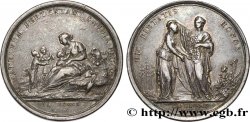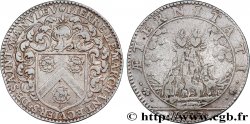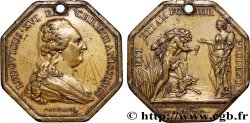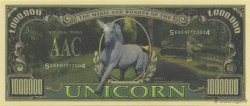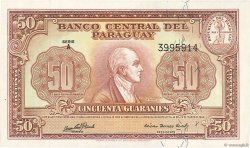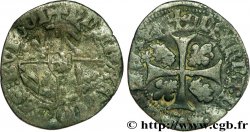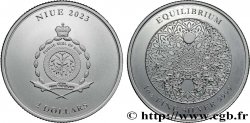fjt_072878 - NORMANDIE (NOBLESSE ET VILLES DE...) Jeton Ar 28, prieur et juges-consuls de Dieppe 1762
non disponibile.
Articolo venduto sul nostro negozio (2010)
Prezzo : 42.00 €
Articolo venduto sul nostro negozio (2010)
Prezzo : 42.00 €
Tipo : Jeton Ar 28, prieur et juges-consuls de Dieppe
Data: 1762
Metallo : argento
Diametro : 28 mm
Asse di coniazione : 6 h.
Orlo : cannelée
Commenti sullo stato di conservazione:
Exemplaire nettoyé mais avec une faible usure de circulation
N° nelle opere di riferimento :
Diritto
Titolatura diritto : LUD. XV. REX - CHRISTIANISS..
Descrittivo diritto : Buste lauré et drapé à droite de Louis XV [variété du n° 338] ; au-dessous signature B. DUV. .
Traduzione diritto : (Louis XV, roi très chrétien).
Rovescio
Titolatura rovescio : CIVICO. FŒDERE PRODERIT ; À L'EXERGUE EN DEUX LIGNES : ÆDIL. DEPPÆ COMIT./ 1762.
Descrittivo rovescio : Écu aux armes de Dieppe sur un cartouche surmonté d’une tête d’ange et soutenu par deux Néréides ; signature D. V..
Traduzione rovescio : (Elle sera utile à l'alliance civile - Assemblée des notables de Dieppe).
Commento
Probablement une association avec un droit de Benjamin Duvivier et un revers de Jean Duvivier, son père. Les juridictions consulaires remontent à Henri II. Dans ces lieux de réunions, les marchands élisent entre eux un prieur et deux juges-consuls qui règlent en première instance les problèmes entre négociants. Les juges-consuls ou juges des tribunaux de commerce sont établis par un édit de 1563. Ils étaient souvent d’anciens consuls (officiers municipaux) d’où leur nom. Au XVIIIe siècle, les juges-consuls jugeaient souverainement jusqu’à 500 livres (au-delà, l’affaire relevait des Parlements).
Probably an association with a right of Benjamin Duvivier and a reverse of Jean Duvivier, his father. Consular jurisdictions date back to Henry II. In these meeting places, merchants elected among themselves a prior and two consul judges who settled in the first instance the problems between traders. The consul judges or judges of the commercial courts were established by an edict of 1563. They were often former consuls (municipal officers), hence their name. In the 18th century, the consul judges judged sovereignly up to 500 pounds (beyond this, the matter fell under the jurisdiction of the Parliaments).
Probably an association with a right of Benjamin Duvivier and a reverse of Jean Duvivier, his father. Consular jurisdictions date back to Henry II. In these meeting places, merchants elected among themselves a prior and two consul judges who settled in the first instance the problems between traders. The consul judges or judges of the commercial courts were established by an edict of 1563. They were often former consuls (municipal officers), hence their name. In the 18th century, the consul judges judged sovereignly up to 500 pounds (beyond this, the matter fell under the jurisdiction of the Parliaments).








 Segnalare un errore
Segnalare un errore Stampate la pagina
Stampate la pagina Condividi mia selezione
Condividi mia selezione Fai una domanda
Fai una domanda Consegnare / vendere
Consegnare / vendere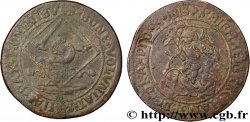
 Descrittivo
Descrittivo